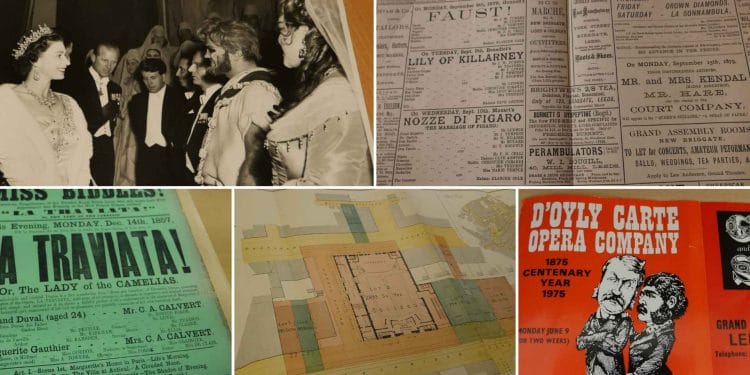Leeds Opera Festival will present a brand new exhibition celebrating the hidden 300 year history of opera in Leeds this summer.
The Leeds Opera Story explores the companies and artists who first brought opera to Leeds. The exhibition will be free to attend and will include a self-guided audio tour of forgotten theatres across the city, which once housed some of the greatest performances.
The festival has launched a companion online resource, http://www.leedsoperastory.co.uk/ which includes three documentary films created during lockdown focusing on different eras of the research, and featuring guests including Richard Farnes and John Savournin.
Leeds Opera Festival Artistic Director David Ward comments: “Whilst audiences and artists often return to the classic, centuries-old operas of the past, it strikes me that we seldom talk about the history of performance – particularly outside of London. Leeds has an amazing operatic heritage going all the way back to 1729. Delving into the forgotten operas, artists and theatres that have contributed to this heritage has been fascinating. It really tells the story not only of how opera has changed over the past 300 years, but of how the city has changed as well. I hope that the exhibition will resonate with audiences regardless of their operatic knowledge!”
Leeds Opera Festival also presents the world premiere of a work written in response to The Leeds Opera Story exhibition by Leeds composer Carmel Smickersgill and Leeds-based librettist Emma Hill. The film will be screened as part of the exhibition. Taking inspiration from Leeds’ operatic heritage, the new piece (titled 12901211) draws parallels between the momentous first staging of Wagner’s Ring Cycle in Leeds in 1911, and the present day – demonstrating the enduring power of opera, and the different challenges faced by those trying to produce opera through the decades.














